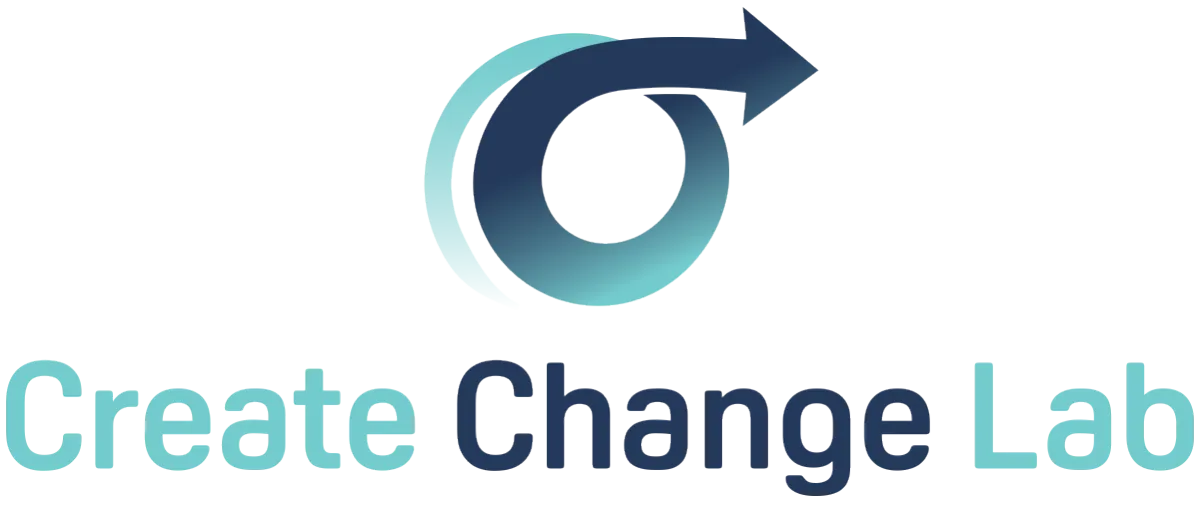About
About
When I was first diagnosed with Parkinson's Disease in the late summer of 2024, I knew that it was coming. Not only had I been experiencing symptoms for about 5 years -- lack of arm swing when walking, slowness, stumbling, lost of strength in my right arm and leg...-- but because it runs in my family: both my mother and father were diagnosed with PD in their later years, and my sister in her late 50's. I haven't tested for the marker gene, because whatever the marker is, it just represents a tendency that can be triggered or subdued by environmental and lifestyle factors. That's epigenetics, and the reason to be proactive: What I do matters.
Epigenetics is the study of how the environment and other factors can change the way that genes are expressed, beyond how the DNA is written. About 15% of Parkinson's patients have a family history of the disease, while only 5-10% are thought to have one of the genetic mutations that can predispose one to the disease (LRRK2, PARK2, PARK7, PINK1 or the SNCA gene).
The Before Times
Professionally, I work in the field of Public Health Communications (aka Behavior Change Communications or Social Marketing), and teach in the Master of Public Health program in the Larner College of Medicine at the University of Vermont. I have a doctorate in Educational Leadership and Policy Studies and a Master's degree in Media Ecology. When I trained to be a Health Coach in 2015, the background in the theories of behavior change and research-based best practices, as well as curriculum development, set me up for taking action on the epiphany I was about to have.
In 2016, I was researching a book that brought together these two interests: media and health. The focus was how the media--and advertising in particular--has created a food culture where convenience is the predominant value. In particular, I was deep into studying the tactics of Big Sugar, and how the repetition of images of kids eating sugary cereals on television has made parents and kids think that cereal is an easy and healthful breakfast -- when nothing could be farther from the truth -- when I had an epiphany in a grocery store.
I was finished with my grocery shopping and looking for a snack to eat in the car on the drive home (that's why they put the candy by the checkout!). As I was reaching for the dark chocolate peanut butter cups, I heard myself say, "You can have that, you worked out today." Now, that's something I've said to myself a hundred or a thousand times before, but since I was studying the sugar industry I was able to identify that it wasn't my rational brain talking. That's when it hit me: That's the Sugar Talking! I stood there in the middle of the market for several minutes, dumbfounded. Have I been addicted to sugar this whole time and not realized it? Are all the rationalizations and justifications for having treats consistent with other forms of addiction? How is it possible that sugar is talking to me? It was right then that I decided to change the focus of my research from advertising and policy to biology. And I was going to unravel my sugar addiction, and teach others how to do it too.
It took me two years to heal my dependency on sugar, and I created my first course Breaking Free from Sugar in 2019. To date, over 4,000 people have taken that course, with over 95% of them reporting they were successful reducing their sugar consumption and planning to continue with a sugar-minimal lifestyle. Then I wrote a book about it called The Sweet Tooth Dilemma, which became a bestseller on Amazon.
Because of that experience of healing took two years until I felt like I was on solid ground -- changing 35 years of habits, beliefs and biology doesn't happen over night -- I figure that might also be the case with PD. if I dedicate myself to learning, and experimenting with changing all the lifestyle and environmental factors within my control, that I can reverse the symptoms of Parkinsonism. And I'm giving myself two years to try (though really I won't stop trying :).
Where I am now
When I was officially diagnosed with PD in the late summer of 2024, I went through an emotionally tumultuous period, alternating self-pity and defiance. I joined the Facebook Group on Alternative Healing for Parkinson's, started following organizations and websites (see Resources tab), and generally started experimenting. I had heard that vigorous exercise was one of the only documented ways to slow the progression of the disease, so I started raising my workout game: got a Peloton bike (to use in addition to the weight training classes) and started Rock Steady, a boxing program for people with PD.
Then, in the late fall, I developed a habit of easily-triggered crying. The smallest mention or thought of having PD would send me into uncontrollable waves of tears. It felt like they were coming from my chest. Just flooded with emotions, a mix of grief, feeling sorry for myself, opportunity lost, feeling like something had been taken away from me, and even a bit of resentment -- why me, I'm so healthy?!
The months of crying came to a peak on New Year's Eve. We went out to a Talking Heads tribute band, with the youthful excitement of dancing in the New Year. Except the minute I stepped on to that dance floor, the sobbing started and barely let up for several hours. You see, I was a dancer -- not a professional dancer but a freestyle dancer, who loved to go out dancing and lose myself in the music. I used to pride myself on being able to dance to any type of music. It was a cherished form of tension release, creative expression, and often a workout too. It was the one place I could get out of my head and into my body. But on New Year's' Eve, my body was having none of it. I could barely sway to the beat let alone dance to those well-loved songs in rhythm..
I suppose that was my emotional rock-bottom, because I woke up the next morning with resolve:
- I'm not going to feel sorry for myself anymore
- I'm going to learn and do everything I can to feel the best I can
- I'm going to figure stuff out and share it with the PD community
I am sharing my journey publicly in case I actually am successful in reversing the disease there will be a record, and also to let others with PD share in my up days and down days. We need to stay resilient.
My approach is systems-based, and starts with the assumption that the rise of PD (and other neurological disorders including Alzheimer's) is not natural to ageing: it is our food, our environment, and our lifestyles are creating disease in the body. It is a functional medicine/nutrition approach that looks to address the root causes rather than merely address symptoms.
I don't have anything against addressing symptoms directly too -- I am currently taking a small dose of carbidopa/levidopa.
It is my current mission: to explore, test, and share what works.
Thanks for reading.
See Recent Posts from my Health Coaching Blogs
[PD Blog starting soon!]

A Cancer Prevention Framework
A close friend of mine was just diagnosed with breast cancer. It’s early, and small, so the prognosis is excellent, and I am grateful for that. Has someone in your life been touched by cancer? If not, that would be quite unusual.
According to the World Health Organization, 1 in 5 people around the world will develop a type of cancer in their lifetime.
Wow. That’s a LOT. This likely means someone in your close family, one or more of your friends, and one or more of your colleagues will be touched by cancer.
I could go off on a rant about how things got this way (perhaps the subject of another post ;), but here I want to provide a simple framework for prevention that goes beyond providing a laundry list thing to do and not do:
Minimize harmful exposures
Strengthen the immune system
Get regular testing.
Minimize Harmful Exposures
This is where it gets tricky—because we can’t live in a bubble. But we can take small, powerful steps to reduce our exposure to known carcinogens.
Pay attention to what goes on and in your body: This means choosing personal care and cleaning products with fewer endocrine-disrupting chemicals (like parabens, phthalates, and synthetic fragrance), drinking filtered water, and being mindful of plastics—especially when heating food.
Be thoughtful about your environment: Air pollution, pesticides, and even new furniture off-gassing flame retardants can all contribute to toxic load. Ventilation, air purifiers, houseplants, and buying used (already-off-gassed) items can help.
Rethink convenience: Fast food, ultra-processed snacks, and microwaveable meals often come wrapped in endocrine-disrupting packaging and laden with additives. Whole foods may take a little more prep, but they dramatically reduce exposure.
Small changes really do add up. You don’t have to overhaul your life overnight—just pick one swap at a time.
Strengthen the Immune System
The body has several ways it fights off foreign invaders, and your immune system is your frontline defense. When it’s working well, it can detect and destroy cells that are beginning to go rogue before they multiply.
So what supports immune strength? It’s not just about popping vitamin C (although that doesn’t hurt). It’s about cultivating the conditions for your immune system to thrive. That means:
Nourishing your body with real food—plenty of colorful vegetables, clean proteins, healthy fats, and fiber to support gut health (which is deeply tied to immune health).
Getting enough sleep—sleep is when your body repairs, detoxifies, and regulates inflammation. Chronic sleep deprivation, on the other hand, suppresses immunity.
Managing stress—easier said than done, I know. But long-term stress elevates cortisol, which weakens immune function. Breathwork, time in nature, movement, meditation, and connection with others all help.
Moving your body regularly—not for punishment, but to get lymph circulating, increase blood flow, and keep your cells energized.
It’s not about perfection. It’s about consistency. Every time you feed your body well, prioritize rest, or take a moment to breathe deeply, you are strengthening your inner army.
Get Regular Testing
This part is often overlooked in prevention conversations, but knowledge is power.
Routine screenings like mammograms, colonoscopies, and pap smears can catch abnormalities early—when they're most treatable.
Functional medicine testing can go deeper, identifying inflammation, heavy metal burden, oxidative stress, and detox capacity—before anything becomes diagnosable.
Know your family history. If cancer runs in your family, you may benefit from more frequent testing or targeted genetic screening (like BRCA or MTHFR). But remember, genetics are just a blueprint; how you live your life will determine how the genes express themselves.
This is not about living in fear. It’s about being proactive.
At the end of the day, cancer prevention isn’t a checklist. It’s a lifestyle. One that values your health as a non-negotiable, and your body as something worth protecting, supporting, and listening to.
You don’t have to do it all at once. Start with awareness. Start with one change. And know that every single step you take toward reducing your body’s burden and strengthening your resilience is a step toward a healthier future—not just for you, but for the people who love you.
Ready to make some moves on reducing your toxin exposure? Then join me for the pilot program of Home Detox Lab, a 5-week program to guide you through systematically minimizing or removing the toxins in your life. There’s a special price for the pilot program, so sign-up for the waitlist here.
That’s all for now.
To your best health!
Andy

© 2025 Create Change Lab, LLC and Andrea Grayson. All Rights Reserved,

